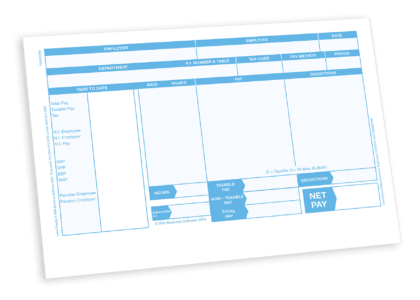Article 74 of the Labour Law No. 4857 and the Regulation on Part-Time Work to be Performed after Maternity or Unpaid Leave in Turkey, which was enacted based on Article 13 of the law and entered into force by being published in the Official Gazette dated 08.11.2016 and numbered 29882, and the provisions of the Regulation on the Conditions of Employment of Pregnant or Breastfeeding Women, Breastfeeding Rooms and Child Care Facilities, which was enacted based on Article 30/a of the Occupational Health and Safety Law No. 6331 and entered into force by being published in the Official Gazette dated 16. The provisions of the Regulation on the Conditions of Employment of Pregnant or Breastfeeding Women and the Regulation on Breastfeeding Rooms and Child Care Facilities, which entered into force upon publication in the Official Gazette dated 16.08.2013 and numbered 28737, regulate maternity leave, maternity leave and breastfeeding leave in Turkey.
Maternity leave in Turkey : how it works ?
In Article 2 of the regulation on pregnant or breastfeeding women, the scope of the regulation is associated with the scope of the Law No. 6331, which expands the scope compared to the scope of the Labour Law. The regulation will be applied without the need to consider the distinction between workers and civil servants, the number of workers or civil servants working in the workplace and the characteristics of the workplace. The Regulation specifically includes the concept of female employee instead of female worker. Thus, the systematics of Law No. 6331 is taken as basis. Considering the difficulties that this determination of the scope may cause in practice, the employees’ own legislation has also been referred to. Article 5 stipulates that in the implementation of the provisions of the regulation, the provisions of the relevant legislation to which the employee is subject shall be taken into consideration. On the other hand, with the second paragraph of the same article, it is stated that the provisions of this regulation will be valid for employees who are within the scope of Law No. 6331 and for whom there is no provision in their own special legislation. With the last paragraph of Article 74 of the Labour Law, it is stipulated that the provisions of the article will also apply to all kinds of workers who work under an employment contract and are or are not covered by the law. In this case, even if the employee works under an employment contract but is outside the scope of the Labour Law (such as agricultural works with less than 50 workers), she will be considered within the scope of this article in case of childbirth and breastfeeding.
Before determining the working conditions of pregnant and breastfeeding women employees, it is necessary to define the concept of pregnant and breastfeeding women.
In Article 4 of the Regulation on pregnant or breastfeeding women, a pregnant employee is defined as an employee who informs her employer about her pregnancy with a document obtained from a health institution, and a breastfeeding employee is defined as an employee who uses milk leave in accordance with the provisions of the legislation to which she is subject and informs her employer about the situation. First of all, the pregnancy must be determined and documented to the employer, and in order for the breastfeeding phenomenon to occur, the birth must occur and the milk leave must be taken and the employer must be informed about this issue.
Article 74 of the Labour Law stipulates the periods of leave to be used before and after the birth. Similar regulations are found in Articles 5, 6 and 7 of the Regulation on part-time work and Articles 7 and 11 of the Regulation on pregnant and breastfeeding women.
Leaves are associated with a female worker’s pregnancy, labour and breastfeeding of her child. Additionally, it is also possible for one of the spouses who adopt a child up to the age of three, or the adopter, or in certain cases, men whose wives have given birth to a child, to use the rights recognised in the context of the regulations. Accordingly
- During pregnancy, the female worker will be given paid leave for periodic check-ups.
- Female employees shall be allowed eight (8) weeks of paid leave for eight (8) weeks before giving birth.
- It is essential that they are not employed for eight (8) weeks after the birth.
- In case of multiple pregnancy, two (2) weeks will be added to the eight (8) weeks before the birth.
- If the health condition of the female employee is appropriate, with the approval of the doctor, it is possible to continue at the workplace up to three (3) weeks before the birth if she wishes. In this case, the periods worked by the employee will be added to the postnatal period, and the postnatal leave period may reach 13 (thirteen) weeks in case of single pregnancy and 15 (fifteen) weeks in case of multiple pregnancy.
- In case of premature birth, the periods that cannot be used before birth will be added to the postnatal periods.
- In case of the death of the mother during or after the birth, the periods not used after birth will be made available to the father.
- One of the spouses who adopt a child under the age of three or the adopter will be granted 8 weeks of maternity leave in Turkey from the date the child is actually delivered to the family.
- From the end of the specified maternity leave in Turkey, for the care and upbringing of the child and provided that the child is alive, female workers and female or male workers who adopt a child under the age of three will be given unpaid leave for 60 days in the first birth, 120 days in the second birth and 180 days in subsequent births for half of the weekly working hours. In case of multiple pregnancy, thirty days will be added to these periods. If the child is disabled, this period will be applied as 360 days. However, the provisions regarding milk leave will not be applied during these periods.
- These periods can be increased before and after the birth according to the health condition of the worker and the characteristics of the work, if necessary and determined by a doctor’s report.
- Upon request, the employee must be given unpaid leave up to 6 (six) months after 17 (sixteen) or 18 (eighteen) weeks in case of multiple pregnancy.
- This leave will be given to one of the spouses or the adopter in case of adoption of a child under the age of three. This leave period will not be taken into account in the calculation of the annual paid leave right.
- Employees in this situation should be given another light job that their health allows. In this context, if it is not possible to transfer the employee to another job, the employee may be granted unpaid leave for the period necessary to protect the health and safety of the employee, provided that the provisions of the legislation to which the employee is subject are reserved.
- Female workers shall be given a total of 1.5 (one and a half) hours of milk leave per day to breastfeed their children under one year of age. The hours between which this period will be used and how many times it will be divided will be determined by the worker himself/herself. This period shall be counted from the daily working time.
Leave for overtime or working for excessive periods
Since the regulation defined as free time in Article 41 of the Law is essentially a paid leave, it is useful to examine it in this section. Accordingly, according to Article 41 of the Labour Law, in the event that the employee who works overtime or working for excessive periods requests (it is important that the request in this regard is accepted with a written document bearing the signature of the employee in order to meet the proof condition), the employee must be given free time not exceeding 1 hour and 30 minutes for each hour of overtime work and 1 hour and 15 minutes for each hour of overtime work. It is possible for the employee to use this free time within 6 months and within the working hours. No wage deduction shall be made for this free time.





